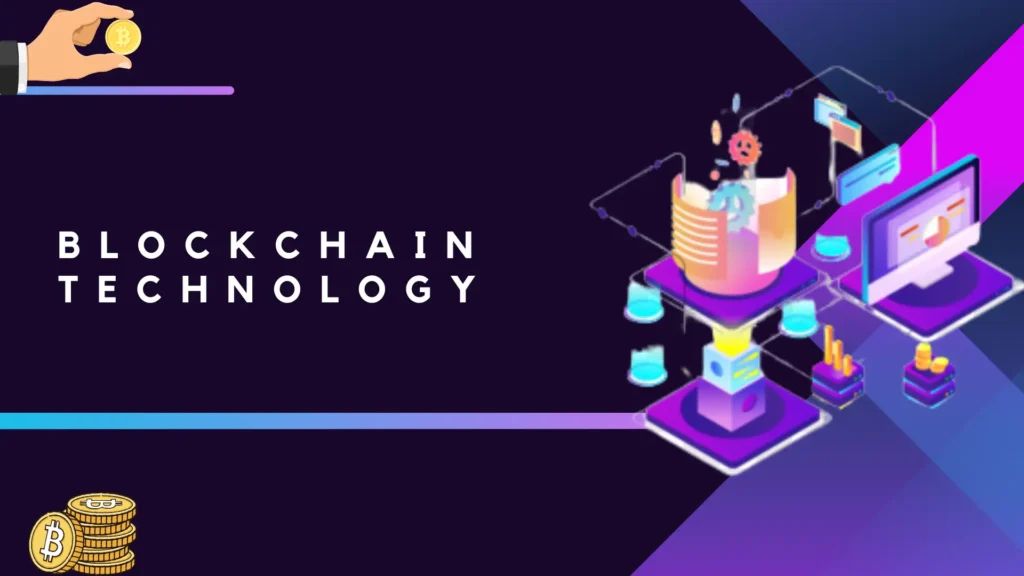Blockchain Technology
Blockchain technology is evolving to disrupt how we do business, protect our data and establish trust in the digital world. It is a free and open system that enables secure and efficient data storage and information transmission.
Blockchain was first presented as the underpinning technology for cryptocurrencies such as Bitcoin. Its decentralized structure and tamper-resistant qualities make it an effective solution for a variety of commercial and organizational difficulties.
In this article, APKShoot is going to dive into the fascinating world of blockchain crypto technology. We’ll look at its basics, applications, and the disruptive influence it’s having on industries like banking, healthcare, and supply chain management, among others. Prepare to learn the mysteries underlying this revolutionary technology and how it is transforming the future.
Definition of Blockchain Technology
Blockchain technology is a distributed database system that keeps track of transactions or data across several computers known as nodes. It enables participants to securely and transparently produce, authenticate, and store information without the need for intermediary companies such as banks or governments. Each transaction is organized into a “block” and added to a chain of previous blocks, resulting in an immutable and verifiable record.

How Blockchain Technology Works
Blockchain ledger technology works on the basis of a consensus process. In this process, participants agree on the authenticity of transactions and the sequence in which they are added to the chain. When a new transaction happens, it is broadcast to the network and validated by several nodes through the use of complicated algorithms. When a transaction is validated, it is added to a block and attached to the current chain, providing an orderly history of transactions.
Key Features of Blockchain Technology
1. Decentralization
By dispersing power among network members, blockchain technology eliminates the need for a central authority, making it immune to censorship and single points of failure.
2. Transparency
Participants may see all transactions recorded on the blockchain, providing transparency and lowering the possibility of fraud or manipulation.
Integrity of Data
3. Data Integrity
A distributed ledger is used by blockchain to ensure that data remains unmodified and correct. When data is put into the blockchain, it becomes nearly immutable, giving a trustworthy source of truth.
4. Security
Security Blockchain uses powerful cryptography algorithms to encrypt transactions and prevent unauthorized access or manipulation of data.
5. Immutability
Once transaction entry is done on the blockchain, it cannot be changed. This results in a tamper-resistant and auditable record of events.
6. Efficiency
Blockchain technology simplifies transactions, decreases costs, and improves operational efficiency by eliminating intermediaries and automating procedures.
Applications of Blockchain Technology
Blockchain technology has several uses in various sectors. Among the most notable examples are:
1. Cryptocurrencies
Blockchain technology enables secure and decentralized digital transactions and is the backbone of prominent cryptocurrencies such as Bitcoin and Ethereum.
2. Supply Chain Management
By documenting and validating the flow of items and assuring authenticity, blockchain may improve supply chain transparency, traceability, and efficiency.
3. Financial Services
By delivering safe and efficient payment methods, smart contracts, and identity verification, blockchain has the potential to disrupt traditional financial services. Blockchain technology alters the financial sector by letting safe and efficient peer-to-peer transactions. This technology also removes the need for intermediaries such as banks. It also facilitates the growth of cryptocurrencies like Bitcoin and Ethereum.
4. Healthcare
Healthcare Blockchain has the potential to improve the security and interoperability of health information, as well as to allow medical research and the secure sharing of sensitive patient data. In healthcare systems, blockchain enhances data interoperability, security, and patient privacy. It helps healthcare providers to securely share medical records, lowering administrative expenses and enhancing patient care.
5. Governance
Through immutable records, blockchain technology may be used to protect voting systems, make government procedures more transparent, and reduce corruption.

Benefits and Advantages of Blockchain Technology
1. Security
Due to its cryptographic methods and decentralized nature, blockchain technology provides a high degree of security, decreasing the danger of fraud and unauthorized access.
2. Transparency and Trust
The transparency of blockchain allows parties to monitor and verify transactions, fostering confidence and removing the need for middlemen. Transparency prevents fraud and increases accountability.
3. Efficiency
Blockchain decreases the time and expense of traditional paper-based operations by removing intermediaries and automating processes, leading in higher efficiency and speedier transaction settlement.
Blockchain accelerates procedures, decreases costs, and removes the need for human verification by eliminating middlemen. Smart contracts automate transactions, removing the need for intermediaries and shortening transaction times.
4. Cost Savings
Blockchain technology decreases administrative expenses and removes the need for intermediaries, making transactions more cost-effective, especially for cross-border payments and remittances.
5. Voting Systems
Blockchain provides a decentralized and secure voting infrastructure that ensures transparency, anonymity, and resistance to tampering. It has the potential to transform the political process by eliminating fraud and assuring accurate outcomes.
6. Improved Traceability
The complete transaction history is recorded and easily traceable using blockchain, offering a transparent and auditable trail of ownership or product origin, which is very useful in supply chain management.
7. Enhanced Data Security
Blockchain uses complex cryptographic methods to ensure data integrity. Blockchain guarantees that data saved on the blockchain is secure.
8. Greater Accessibility
Through Blockchain technology unbanked and underbanked people are able to provide financial services without access to traditional banking institutions.
9. Smart Contracts
Smart Contracts Blockchain enables the execution of self-executing smart contracts, which autonomously enforce an agreement’s terms and conditions, removing the need for middlemen and ensuring party confidence.
Challenges and Limitations of Blockchain Technology
1. Scalability
The current limitations of blockchain technology include scalability issues. It has the process of verifying and adding transactions to the chain can be time-consuming.
2. Energy Consumption
Some blockchain networks, such as Bitcoin, require significant computational power and energy consumption, raising concerns about sustainability and environmental impact.
3. Regulatory Uncertainty
The regulatory landscape surrounding blockchain technology is still evolving, which can create uncertainty for businesses and hinder widespread adoption.
4. Interoperability
Ensuring interoperability and compatibility between different blockchain platforms and networks remains a challenge, as there are multiple blockchain protocols and standards.
5. Privacy Concerns
While blockchain offers transparency, there are concerns regarding the privacy of sensitive data stored on the blockchain, especially in applications like healthcare and identity management.

Future Potential of Blockchain Technology
Despite the obstacles, blockchain technology has enormous future promise. Blockchain has the potential to further disrupt numerous businesses as technology advances and scalability difficulties are overcome. Here are a few examples of where blockchain might have a huge impact
1. Decentralized Finance (DeFi)
Blockchain-powered decentralized finance systems have the potential to revolutionize existing financial services by allowing access to lending, borrowing, and trading without the need for permission.
2. Internet of Things (IoT)
Blockchain can offer a safe and decentralized system for IoT devices. This system enables secure data exchange, computerized transactions, and improved device identity management.
3. Digital Identity Management
Blockchain technology can provide a decentralized and secure framework for maintaining digital identities. This gives users authority over their personal data and improves online transaction security.
4. Supply Chain Optimization
Blockchain can improve supply chain transparency, traceability, and efficiency by eliminating fraud, counterfeit products, and inefficiencies in the global supply chain.
5. Government Applications
Governments all across the globe are exploring the use of blockchain technology for applications such as land registries, voting systems, and identity management. This will help to improve transparency, security, and efficiency in public services.
Conclusion
Blockchain technology has the power to transform a variety of sectors by enabling safe, and efficient transactions, data storage, and information exchange. Its decentralized nature, along with powerful cryptographic algorithms. So provides members with increased security and confidence. While there are obstacles to overcome, such as scalability and regulatory issues, blockchain technology has a bright future. As technology advances, we should expect more innovations and wider use in the next years.
Related Articles
- Best Programming Language for Artificial Intelligence
- Exploring the Future of Chat GPT
- A Guide to Deep Learning
FAQ
No, while blockchain technology is the underlying technology for cryptocurrencies, its applications extend beyond digital currencies to various industries such as supply chain management, healthcare, and governance.
A smart contract is a self-executing contract with predefined conditions written in code. It automatically executes transactions and agreements when the conditions are met, without the need for intermediaries.
A1. Blockchain’s decentralized and cryptographic nature makes it highly secure and resistant to hacking. However, individual vulnerabilities in specific implementations can pose risks.
Blockchain technology aims to provide greater access to financial services. This technology is especially for unbanked or underbanked people who lack access to traditional banks. However, the technical complexity requirements may still present barriers to widespread adoption.
Blockchain technology can play a role in cybersecurity by providing secure identity management, protecting against data tampering and unauthorized access, and enhancing the resilience of critical systems through decentralized architectures. It offers a robust framework for secure data storage and verification, reducing the risk of data breaches and cyberattacks.
While blockchain technology offers enhanced security and transparency, there are still risks to consider. These include potential vulnerabilities in smart contracts, the possibility of 51% attacks in certain blockchain networks, and the reliance on private cryptographic keys, which, if lost, can permanently lose access to funds or data.
Blockchain ensures data security and privacy through its decentralized and cryptographic nature. The data stored on the blockchain is encrypted. It can only be accessed by those with the cryptographic keys. Moreover, the blockchain’s consensus mechanism guarantees that transactions are verified and added to the chain.
Some potential drawbacks of blockchain technology include scalability issues, high energy consumption in certain blockchain networks, regulatory uncertainty, interoperability challenges between different blockchain platforms, and concerns regarding the privacy of sensitive data stored on the blockchain.
Yes, blockchain technology has the potential to alter traditional banking systems by offering secure and efficient payment systems. It reduces the need for intermediaries and enables quick and more cost-effective cross-border transactions.










